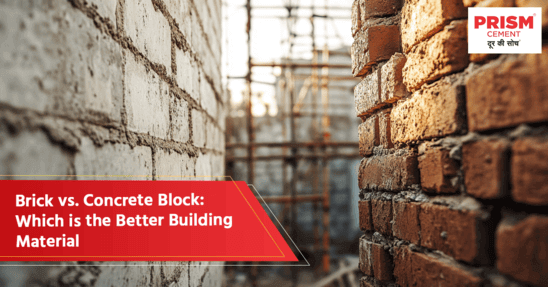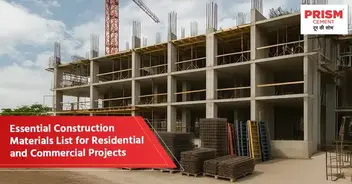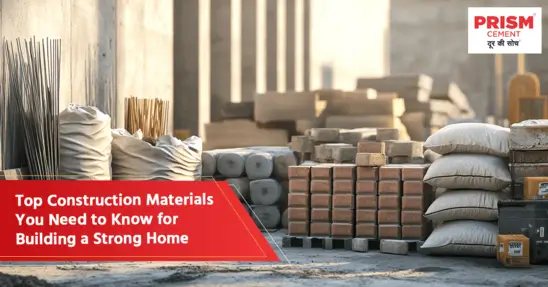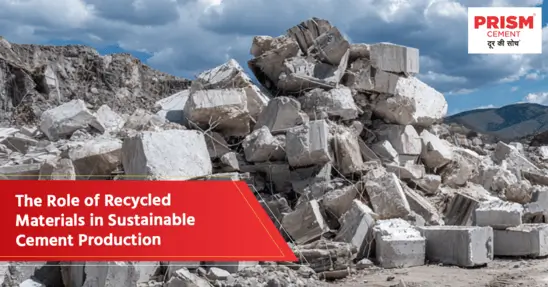Choosing the right building material is one of the most critical decisions in any construction project. Among the many options available, bricks and concrete blocks stand out as two of the most widely used materials. However, understanding their differences can help you make an informed decision based on the specific requirements of your project.
Understanding Bricks and Concrete Blocks
Bricks have been a staple in construction for centuries. These small, rectangular units made from fired clay are known for their strength, durability and timeless aesthetic appeal. There are various types of bricks, each designed for specific applications in construction.
Concrete blocks, on the other hand, are larger units made from a mixture of cement, sand and aggregates. They have gained popularity in modern construction, especially for large-scale and commercial projects, due to their high strength and uniformity. Unlike bricks, concrete blocks can be customized in size and design, making them highly versatile.
Key Differences Between Bricks and Concrete Blocks
When comparing bricks and concrete blocks, several key differences emerge:
- Material Composition: Bricks are made from natural clay, while concrete blocks are made from cement, sand and aggregates.
- Size: Concrete blocks are significantly larger than bricks, allowing for faster construction in large projects.
- Strength: Concrete blocks generally offer higher strength and durability, making them ideal for load-bearing structures.
- Aesthetic Appeal: Bricks provide a traditional, classic look, while concrete blocks offer modern design versatility but may lack the rustic charm of bricks.
Pros and Cons of Bricks and Concrete Blocks
Bricks
Advantages:
Aesthetic Appeal – Bricks add character and timeless charm to buildings.
Natural Insulation – They help maintain indoor temperatures, keeping homes cool in summer and warm in winter.
Durability – Resistant to weather conditions and long-lasting, making them ideal for residential structures.
Disadvantages:
Higher Cost – Bricks are often more expensive than concrete blocks in terms of both material and labour.
Longer Construction Time – Their smaller size requires more time and effort to install, increasing labour costs.
Concrete Blocks
Advantages:
High Strength – Concrete blocks are stronger and more durable, making them suitable for large structures and load-bearing walls.
Cost-Effective – Due to their larger size, they require less labour and result in faster construction.
Customizability – Available in various sizes and textures, offering design flexibility.
Disadvantages:
Less Aesthetic Appeal – Concrete blocks lack the traditional charm of bricks.
Lower Insulation – They provide less thermal insulation, which may lead to higher energy costs if additional insulation is not applied.
Which One Should You Choose?
The choice between bricks and concrete blocks largely depends on your project’s requirements:
- For residential projects where appearance and insulation matter, bricks are the ideal choice. Their natural thermal properties make them suitable for cozy, energy-efficient homes.
- For large-scale commercial or industrial projects, concrete blocks offer greater strength, durability and cost-efficiency. Their larger size allows for quicker construction, making them the preferred option for modern architecture.
Conclusion
Both bricks and concrete blocks have distinct advantages, making them suitable for different types of construction. Bricks offer a classic look, durability and better insulation, making them perfect for smaller, traditional structures. Concrete blocks, on the other hand, provide higher strength, affordability and efficiency, making them ideal for large-scale projects.
Ultimately, your choice will depend on your project’s needs, budget and desired aesthetic. By understanding the benefits and limitations of each material, you can select the one that best fits your construction goals.
Frequently Asked Questions (FAQs)
Q1. What is the main structural difference between bricks and concrete blocks?
Answer: Bricks are made from natural clay, whereas concrete blocks are made from cement, sand, and aggregates. Concrete blocks are stronger and better suited for large-scale structures.
Q2. Which material is better for residential construction?
Answer: Bricks are often preferred for homes due to their aesthetic appeal and superior insulation properties compared to concrete blocks.
Q3. How do bricks and concrete blocks compare in terms of cost?
Concrete blocks are generally more cost-effective because they are larger and require less labour for installation, whereas bricks are more expensive in terms of material and labour.
Q4. Which material provides better thermal insulation?
Answer: Bricks offer better natural thermal insulation than concrete blocks, which may require additional insulation to improve energy efficiency.
Q5. Which material has a longer lifespan and requires less maintenance?
Answer: Both materials are durable, but concrete blocks typically require less maintenance in large-scale construction projects due to their higher strength.




